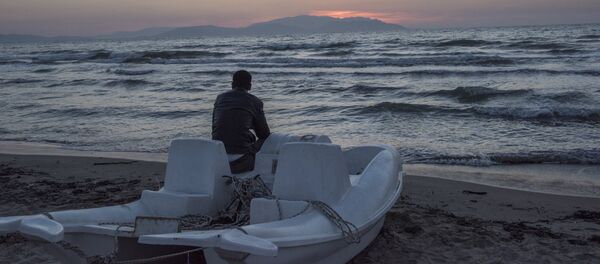"Most outbreaks of vaccine-preventable diseases such as measles occur in the Region [Europe] independently of refugee and migrant population movement. Most of the refugees and migrants now arriving in Europe come from Middle Eastern countries where [immunization] coverage has traditionally been high," Salvi said.
The spokeswoman added that the disease continues to spread within and among European countries, and WHO is working closely with the national health authorities to develop and implement appropriate response measures.
"Those most at risk for vaccine-preventable diseases are young children who have not yet been vaccinated because the vaccination programmes in their home countries have been interrupted by civil unrest and war. As some countries of the Region [Europe] are still considered endemic for measles and rubella, refugees and migrants should be vaccinated against these diseases as a priority and in line with national vaccination schedules," Salvi stated.
According to Rospotrebnadzor, measles cases were registered in 14 European countries, namely Austria, Belgium, Bulgaria, the Czech Republic, Hungary, France, Germany, Iceland, Italy, Portugal, Romania, Spain, Switzerland and Sweden, due to low immunity of the populations of those states.
"Today’s travel patterns put no person or country beyond the reach of the measles virus. Outbreaks will continue in Europe, as elsewhere, until every country reaches the level of immunization needed to fully protect their populations," Salvi added.
Measles is a highly contagious and potentially fatal disease which is a leading cause of death among young children. In 2015, WHO registered more than 134,000 measles deaths globally, most of which were in children under the age of five. In order to interrupt endemic spread of the disease, level of immunization coverage should achieve at least 95 percent, and every susceptible person should receive two doses of measles vaccine.
Never miss a story again — sign up to our Telegram channel and we'll keep you up to speed!



